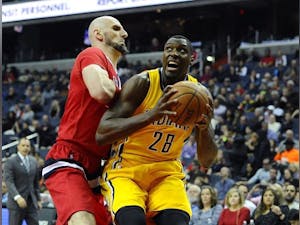From: The Dynasty
Mourning the loss of Grantland
On Friday, ESPN announced that Grantland, a sports and pop culture website created by Bill Simmons, would stop publication. The announcement came nine days after ESPN announced that the company would be laying off 300 employees.
The news does not come as a big surprise. Simmons, the architect of the website, was fired back in May after his criticism of NFL commissioner Roger Goodell. Soon after ESPN let Simmons go, he signed a deal with HBO and brought most of his editorial staff from Grantland with him.
Chris Connelly, an accomplished journalist himself, took over Grantland after Simmons’ departure, and the website continued operations as if Simmons never left. However, writers began to leave the site after Simmons, the man who hired them, left. Wesley Morris, a Pulitzer Prize winner, left Grantland to write for the New York Times. Rembert Browne recently left and now writes for New York Magazine. Dan Fierman, the editorial director of the website, fled to MTV news.
Despite the writing on the wall and turnover in personnel, ESPN made a big mistake by shutting down Grantland. The website stood at the forefront of sports and pop culture journalism. Grantland did not focus on the “what” -- they left that up to the traditional media. Instead, Grantland focused on “so what” and “now what”.
For example, Zach Lowe, Grantland’s former lead NBA writer, wrote a piece about LaMarcus Aldridge joining the San Antonio Spurs. Aldridge is a fantastic player -- he averaged 23 points and 10 rebounds last season. On paper, Aldridge’s change was a great move that has the ability to prolong the Spurs dynasty, and the media praised the decision accordingly. However, Lowe described in detail how Aldridge will have to retool his game in order to fit with the Spurs’ offensive system and how he will have to adjust his shot selection and pick his spots better when he’s sharing the court with Tim Duncan - an all-time great and the foundation of the Spurs success. Lowe also talked about how crucial Tony Parker, the Spurs point guard, is to making Aldridge fit in.
This sort of analysis is what makes Grantland so great. The site looked at things that traditional media outlets wouldn’t consider.
What really made Grantland work, however, was the writers. These journalists were not only supremely talented but supremely funny and interesting as well. Shea Serrano has written about basketball, hip-hop and movies. Brian Phillips wrote an article about how Jurgen Klopp will affect the English Premier League and, in the following two weeks, wrote pieces about Andre the Giant and his first trip to Disneyland. All of these articles worked, and not a single one felt out of place.
The Grantland staff was filled with brilliant, brash, and candid writers. They did not hide biases. Through their writing, you could tell who these writers really were - and this is what attracted me to the website. They told it like it was.
To me, Grantland was much more than just a website. It was a source of inspiration, a website that I wanted to write for. I want to be as funny as Serrano, as incisive as Lowe, and as well-versed as Phillips. I could talk about my adoration for the Grantland staff all day. I don’t know where I’m going to get my sports commentary now. All of the writers that were displaced by ESPN’s horrid decision will undoubtedly go and write elsewhere, but they will never be together in one place again, and that’s a shame for everybody. One day, long after the demise of Grantland, I think that we’ll look back in awe of all the writing talent that Grantland produced, and the generation of writers that it inspired.



